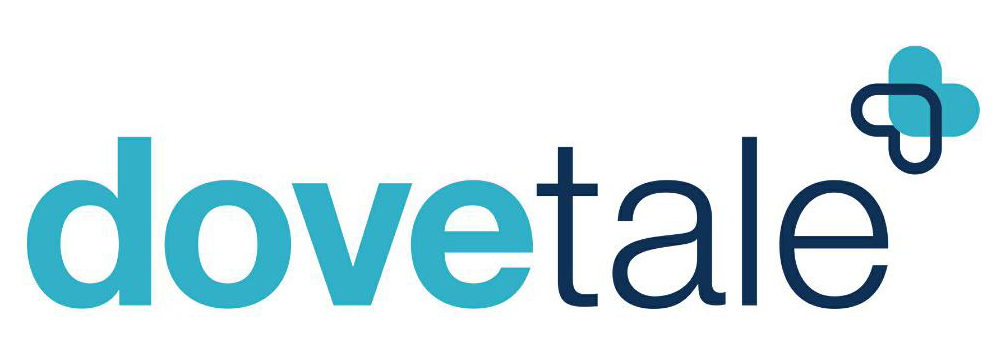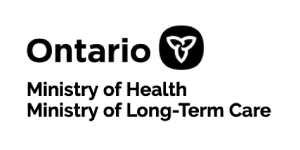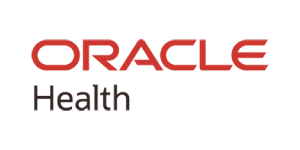Father Sean O'Sullivan Research Centre
Project AMPLIFI
Integrating Healthcare Data for Improved Care
Canada’s population aged 85 and older is one of the fastest-growing age groups and by 2046, the number of Canadian’s aged 85 or older could triple to almost 2.5 million people, according to Statistics Canada. This growth also means increasing demand for long-term care (LTC) facilities. In 2024, the Ontario government announced an investment of $155 million to fast-track more new construction of long-term care facilities. But adding more LTC beds is only part of the challenge to meet today’s care demands and optimize health delivery for an aging population.
Each year in Ontario, there are approximately 37,000 patient transfers between hospitals and long-term care homes. Unfortunately, for most of these cases of transition of care, patients are too sick or cognitively impaired to describe their symptoms, outline ongoing treatments, or relay their prior medical problems – including potentially lethal allergies.
Historically, when this essential health information is shared between facilities, it tends to be delivered as a stack of paper that arrives with the patient or sent by fax, requiring manual sorting and data entry into the hospital’s or LTC home’s unique electronic medical record system. Unclear or incomplete information from paper records may lead to subsequent phone calls between healthcare providers.
“Ultimately, these old paper and fax processes are outdated, complex, time consuming, and may never provide all of the necessary information quickly enough,” says Dr. Dan Perri, a St. Joe’s internal medicine and critical care physician, the Hospital’s chief medical information officer, and affiliate scientist with The Research Institute. According to Dr. Perri, these conditions create opportunities for “unnecessary delays in appropriate care and potential risks to patient safety.”

Project AMPLIFI aims to facilitate the exchange of electronic health information between Ontario hospitals and long-term care facilities.
Seamless inter-operability of health data systems plays a crucial role in minimizing care fragmentation at transitions of care for vulnerable populations. Studies from the US show that the digital exchange of health information results in a reduction of mortality and an increased likelihood of older adults, particularly those with dementia, to return to the community.
In 2020, during the initial wave of the pandemic, researchers at St. Joseph’s Healthcare Hamilton, led by Dr. Perri, completed their analysis of a pilot project that digitally integrated the hospital’s information system with the electronic medical record of its health system partner, St. Joseph’s Villa, a long-term care facility in Dundas, Ontario. This pilot project, funded by the federal government’s CAN Health Network, demonstrated value through improved efficiencies for care providers and saved time by integrating patient records electronically.
Not long after, the Ontario government announced that improving patient transitions was a key priority and committed funding to support the sharing of clinical data across the province. As the first Canadian hospital to achieve digital integration with a long-term care facility, St. Joseph’s Healthcare Hamilton was selected to lead the implementation of a province wide digital health information inter-operability project between hospitals and long-term care homes.
Project AMPLIFI is the clinical data exchange project led by St. Joe’s Digital Solutions team and funded by the Government of Ontario’s Ministry of Health and Ministry of Long-Term Care. The St. Joe’s team consists of individuals with both clinical and non-clinical backgrounds, including medicine, nursing, education, health informatics, IT, project management, and digital health leadership. It has provided co-op and other educational opportunities for students in undergraduate and graduate programs in nursing, engineering, computer science, health informatics/eHealth, and business.
Through Project AMPLIFI, care providers will have real-time access to secure, electronic health information when patients visit participating hospitals or long-term care homes to receive care. This includes the ability for bi-directional exchange of discrete data like allergies, medications, immunizations, and problem list (a list of current and active diagnoses, as well as other past diagnoses relevant to the patient’s care). Also sent electronically between organizations is the Continuity of Care Document (CCD) – a summary of care document that includes, among other things, the latest patient vital signs and goals of care.
Did you know?
“AMPLIFI” is an acronym for Allergies, Medications, Problem List, Immunizations For Integration

More than 90 percent of long-term care homes in Ontario use the PointClickCare (PCC) platform for their electronic medical records. PCC’s integration software was able to facilitate the exchange of clinical information with CareEverywhere, the interoperability software of Epic, the vendor of St. Joe’s electronic medical record system (called Dovetale). The St. Joe’s team enabled the work for other Epic hospitals to join AMPLIFI and report data.
The remainder of the province’s hospitals use other software platforms, which require additional software to handle real-time data viewing and reconciliation (transcribing) within local patient charts. As a result of Project AMPLIFI, two health information exchanges (HIEs) were created that will enable most hospitals using Meditech and Oracle Health software to be able to exchange health information with each other and long-term care homes.
With technical help from four vendors and close collaboration with hospital IT and project management teams, Project AMPLIFI has integrated 67 acute care hospitals and 457 long-term care facilities in Ontario, with 37 additional hospitals and 113 new LTC sites scheduled for onboarding by March 2025.







While the technical aspects of integrating software platforms have been challenging, managing the implementation of new workflows is another hurdle for the AMPLIFI team. The team produced training materials and toolkits for hospital and LTC staff, hosted virtual engagement sessions, and conducted on-site visits as part of a comprehensive training and change management plan. Materials were also produced for LTC residents and their families to explain the benefits of the integration, including reassurances that their health data would be kept private and only shared with trusted healthcare providers. In long term care, change management from Project AMPLIFI has been very well received with more than two thirds of staff reporting that they have confidence in using the clinical information exchange tools.
“Many long-term care homes have never been part of a formal program of research,” notes Dr. Perri. “An enormous effort is required to engage the hospitals and LTC homes in the collection of the research data that facilitates the province wide evaluation of this important project.”
Sarah Culgin, research manager on Project AMPLIFI, along with Dr. Perri, expressed their gratitude towards The Research Institute of St. Joe’s for their continued support. The Research Institute’s contracts and legal team worked with external legal teams to negotiate upwards of 50 collaborative research agreements and facilitated the additional agreements needed to collect evaluation data from the remaining sites province wide.
With data sharing agreements in place for 28 hospital systems and 291 nursing homes, Project AMPLIFI has facilitated data exchange for 75,000 patient transfers and well over 1 million pieces of discrete health data have been viewed by clinicians. Survey results reveal that 75 percent of hospital and 80 percent of LTC clinicians believe the inter-operability solution improves patient safety with around two thirds acknowledging a reduction in transcription errors.
“Long term care staff have noted in interviews that tasks previously taking almost an hour can now be completed in 15 minutes, allowing more time for other responsibilities,” says Dr. Perri, highlighting robust efficiency gains noted by some front-line workers.
The next phase of research aims to look at impacts on health outcomes like mortality, healthcare utilization including ED visits, hospital admissions, and hospital length of stay, and estimates of health system cost savings.
By addressing the information gaps of fragmented care by enabling the electronic exchange of health information between hospitals and long-term care facilities, Project AMPLIFI aims to demonstrate improved patient outcomes, greater workflow efficiency, and a reduction in medical errors that will boost patient safety.
Learn more about Project AMPLIFI on their website, www.amplifiontario.ca, or watch the video below.

